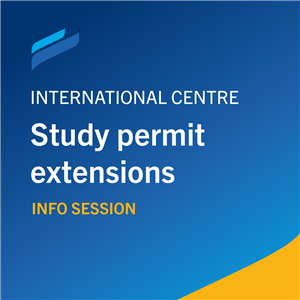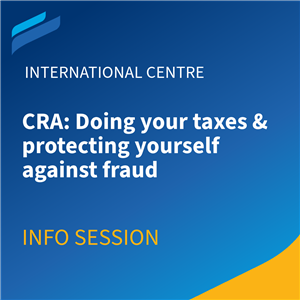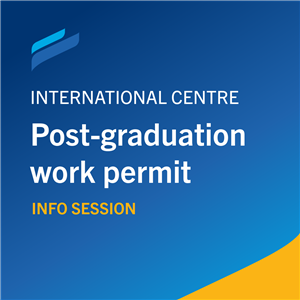Setting up your account
It’s important to set up a bank account as soon as possible so you can start depositing money, paying bills, and tracking your expenses in Canada. There are two different kinds of financial institutions in Canada: commercial banks and credit unions. There are differences in their ownership structures, the amount of interest that is paid, the fees and the extent of customer service you receive.
Credit Unions are financial co-operatives, owned and controlled by the people who use their services. The people who use credit union services must own shares in the credit union and members of many credit unions share in the profits every year. Credit unions offer the same services as banks and often have lower fees.
The advantage of banks is that it is often easier to arrange international financial transactions through a bank. There are many banks to choose from, but the CIBC is the only bank that currently offers Automated Teller Machines (ATM) on campus. If you intend to use ATM machines on campus, a CIBC account may save you money in transaction fees.
This tool can help you make the right banking institution choice for you.
In general, there are two types of bank accounts: chequing accounts and savings accounts.
- A chequing account is useful for regular transactions such as paying bills or other expenses and for withdrawing money.
- A savings account will pay a higher interest rate if you are keeping money in the account for a long period without withdrawals.
There are different kinds of chequing and savings accounts that offer different levels of interest. The financial institution should be able to explain which account will best suit your needs.
Opening an Account
To open a bank account, you will need to make an appointment at the bank or credit union of your choice. When you go to the appointment, be sure to bring documents such as:
- your passport and study permit;
- your University of Manitoba student card (if you have it);
- proof of full-time student status (a student status letter from the Registrar’s Office) and
- any other documents the bank or credit union requests that you bring.
Transaction and Service Fees
Be sure to ask about the transaction and service fees that the bank or credit union charges for writing and cashing cheques, using an ATM card, wiring money, etc.
Learn more about banking services in Canada.
Moving Your Account
If you find that a financial institution’s fees are too high or that you are not satisfied with the service, you can always close your account and move to a different institution.
Debit Cards
When you open a bank account, you will be issued a debit card (also referred to as an ATM card or a bank card) to use in bank machines around the city, or to pay directly for goods and services. This is a secure method of payment, which is protected through the use of a Personal Identification Number (PIN). When you pay using your debit card, the money is immediately deducted from your account. Your bank will typically charge you an additional service fee if you withdraw money from a bank machine that belongs to a different bank.
Credit Cards
Credit cards can be a convenient way to make payments. The amount you spend accumulates on your account and you are responsible for paying off what you’ve spent once a month. Most online purchases are made using a credit card. In order to apply for a credit card, you will need two pieces of government-issued identification. You may want to ask if they have a no-fee student card.
It can be difficult for international students, including U.S. citizens, to get a credit card, and the initial credit limit is often very low (i.e., $250 Canadian), which can make it difficult to use the card to make larger purchases such as an airline ticket. However, if you develop a good credit score (by making your payments on time and in full, not opening multiple credit cards and avoiding credit-seeking behaviours), you can have this limit increased.
If you are facing unexpected financial distress, or have had a significant change in your financial situation, please contact Financial Aid and Awards or the UMSU Hardship Fund.
Banks and Credit Unions close to UM Campus
Most bank and credit union websites offer online branch locators. Simply type in an address in Winnipeg to see a list of branches nearby.
BMO Bank of Montreal
Customer Service: 1-877-225-5266
- 2785 Pembina Hwy / (204) 985-2225
- 1188 Pembina Hwy / (204) 985-2496
- 1510 St Mary's Rd / (204) 985-2887
CIBC - Canadian Imperial Bank of Commerce
Toll-free Phone #: 1-800-465-2422
- 2866 Pembina Hwy / (204) 944-5119
- 1545 Mary’s Rd / (204) 944-6803
- 333 St Mary Ave / (204) 944-5057
HSBC Canada
Customer Service: 1-888-310-4722
- 1560 Kenaston Blvd / 204) 927-3660
- 110-330 St. Mary Ave / (204) 956-1632
RBC Royal Bank
Toll- Free Phone #: 1-800-769-2511
- 26-2855 Pembina Hwy / (204) 988-6062
- 1300 Pembina Hwy / (204) 988-6410
- 1-1550 St. Mary’s Rd / (204) 988-6300
Scotiabank
Toll- Free Phone #: 1-800-472-6842
- 2840 Pembina Hwy / (204) 985-5196
- 1091 St. Mary’s Rd / (204) 985-3117
TD Canada Trust
Toll-free Phone #: 1-866-222-3456
- 1305 Pembina Hwy / (204) 988-2446
- 2799 Pembina Hwy / (204) 988-2285
- 1631A St. Mary’s Rd / (204) 988-2630
- 648 Notre Dame Ave / (204) 988-2983
Manitoba Credit Unions










